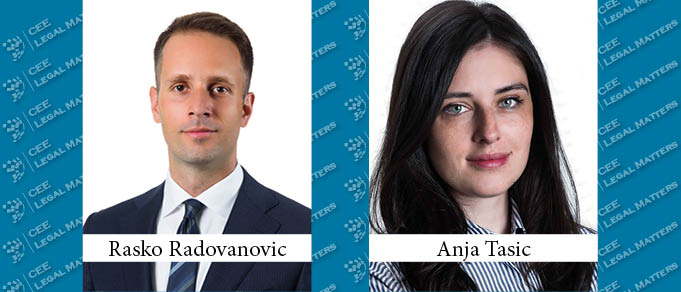Montenegro first introduced a State aid control framework in 2011 in preparation for initiating the EU accession process. Almost ten years later, as the candidate country currently furthest along its accession journey, Montenegro has largely harmonized its State aid framework with the EU acquis. Still, the current level of enforcement and transparency leave a lot of room for improvement.
Competences Switch
In 2018, the competences of the Montenegrin Agency for Protection of Competition (APC) were expanded to include State aid control, in addition to its prior mandate to enforce the Montenegrin competition laws. This rectified one of the most significant flaws of the initial Montenegrin State aid control framework, namely, that the previous regulator, the State Aid Control Commission, was an arm of the Ministry of Finance, which brought into question its independence and the effectiveness of State aid control.
Combining the enforcement of competition and State aid control rules within one body is a solution some other countries in the region have chosen as well (including Croatia, before it joined the EU, and North Macedonia and Croatia). Potential logistics benefits aside, this approach should be beneficial in a jurisdiction such as Montenegro, which has less experience or track record with State aid control, and where further enforcement in the area can build upon the foundation of the antitrust and mergers enforcement history of the authority.
In its newest 2019 Progress Report, the European Commission highlights that the switch of competences to the APC is an improvement but recognizes that the building up of the APC’s State aid enforcement record is of great importance going forward. Montenegro’s progress in this area was confirmed in June 2020 by the official opening of Chapter 8 negotiations – the final Chapter in the country’s accession process – further cementing its frontrunner status.
Enforcement
By the end of 2019, the APC opened its first two ex post investigations into aid already granted to the Montenegrin national airline and into Adriatic Marinas, the operator of the Porto Montenegro marina, which had not been notified to and cleared by the regulator.
In 2018 and 2019, the Montenegrin Government seems to have paid out direct grants totaling EUR 12.7 million to Montenegro Airlines without receiving a green light from the regulator. The APC is now looking into the compatibility of these grants with the law. The main issue is that Montenegro Airlines is an undertaking in difficulty, which had already received restructuring aid totaling EUR 35.6 million as part of a 2012 Restructuring Plan; these new rounds of direct grants could thus be in breach of the one time last time rule according to which an undertaking in difficulty cannot receive restructuring aid, i.e., be rescued more than one time in a ten-year period.
In the Adriatic Marinas case – which was opened after the European Commission’s Montenegrin Delegation inquired about the aid in question – the APC is investigating whether relief of a utilities debt in the amount of EUR 5.6 million provided by the Municipality of Tivat constituted aid incompatible with the law.
Stepping Up the Game
These cases are surely a step in the right direction and are a sign of the APC’s readiness to take on bigger cases that involve important market players and high amounts of aid. In the upcoming period, the APC will also need to prioritize its advocacy activities, as stakeholders, and in particular entities that can act as aid grantors, have a rather low level of awareness and familiarity with State aid rules, which leads to grantors failing to notify the regulator about the aid. Similarly, a lack of third-party complaints that could significantly help the authority’s investigative efforts is also evident. Now that Chapter 8 has finally been opened, the APC will likely be under more pressure to step up its game and work towards realizing the European Commission’s recommendations in this area.
By Rasko Radovanovic, Partner, and Anja Tasic, Senior Associate, CMS
This Article was originally published in Issue 7.8 of the CEE Legal Matters Magazine. If you would like to receive a hard copy of the magazine, you can subscribe here.
